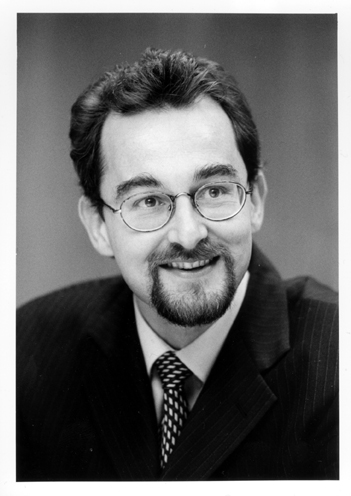Yesterday morning, many of us here in the UK heard from Mark Abell, a British lawyer, who spoke to British radio from the Oberoi in Mumbai, where he was barricaded in his room. Abell was extraordinarily calm – remarkably collected despite the danger he faced.
This morning it was a relief to hear that he’d been rescued, after long long hours in his room, communicating with others in the hotel using his Blackberry, and latterly with the British Council, who appear to have played some role in keeping in touch with UK hostages.
Abell is devastated by the experience – not so much by what happened to him, as by the fate suffered by others. In particular, he talks movingly of the death of the waitress who served him in the restaurant just before he went to his room, and of a Japanese businessman who he’d been chatting to (in Japanese) just before the attacks.
If you didn’t hear his interview with the Today programme, then make sure you listen. He’s a great guy.
We spent 48 hours, all but, with no food and little water, surrounded by explosions, gun shots, people running up and down the corridor screaming. It was grim, very grim…
The people here have been fantastic… the Indian authorities, the hotel people, they’ve just been incredibly good and kind…
The lobby was carnage. There was blood and guts everywhere. It was very very upsetting. Just before I went to my room, I had dinner in the Kandahar restaurant. I’ve now just found out that that was one of the places it started. Unfortunately…[he breaks down] the waitress who served me was one of the first to get shot….
It’s been a picnic for me. It’s all these other brave people who need acknowledgement and praise.
Update: I just wanted to underline my gratitude for the role played by British Council staff, and by staff from the British embassy and consulates in emergencies such as these. They tend to see some dreadful things, but do their best under immense pressure.
Update II: More heroics from hotel staff:
[Prashant] Mangeshikar, 52, told Reuters that he had been in the foyer with his wife and daughter when the attackers arrived and started firing. Hotel workers ushered guests into an upstairs service area to escape, but they then came across another gunman.”He looked young and did not speak to us. He just fired. We were in sort of a single file,” said the Mumbai gynaecologist. “The man in front of my wife shielded us. He was a maintenance staff. He took the bullets.”
Mangeshikar added that the guests managed to take shelter inside a room, dragging the injured staff member, identified only as Mr Rajan, in with them. For the next 12 hours they attempted to stop the bleeding from his stomach wound. Rajan was eventually evacuated, but it is not known whether he survived.
“I’m going out today to the hospital to find out what happened to him,” Mangeshikar said. “I owe it to that brave man.”
Update III: Apparently members of the some people visiting the British Council were caught in the Taj restaurant – but have now been freed, while another British Council staff member visitor was shot in another incident at the hotel. Adrian Bregazzi speaks to the BBC World Service:
He was shot at close range by what appears to have been a teenager with an AK-47. He was left for dead, luckily for him, and managed to crawl into some bushes. He’s suffered from a huge blood loss, but is in surgery now.
[I have clarified the above – as it seems that those injured were visiting the BC – probably from the UK (and probably to promote British education] – not staff members]
Update IV – Great quote from Mark Abell as he arrived back in the UK: “Without food, information became our sustenance.”





